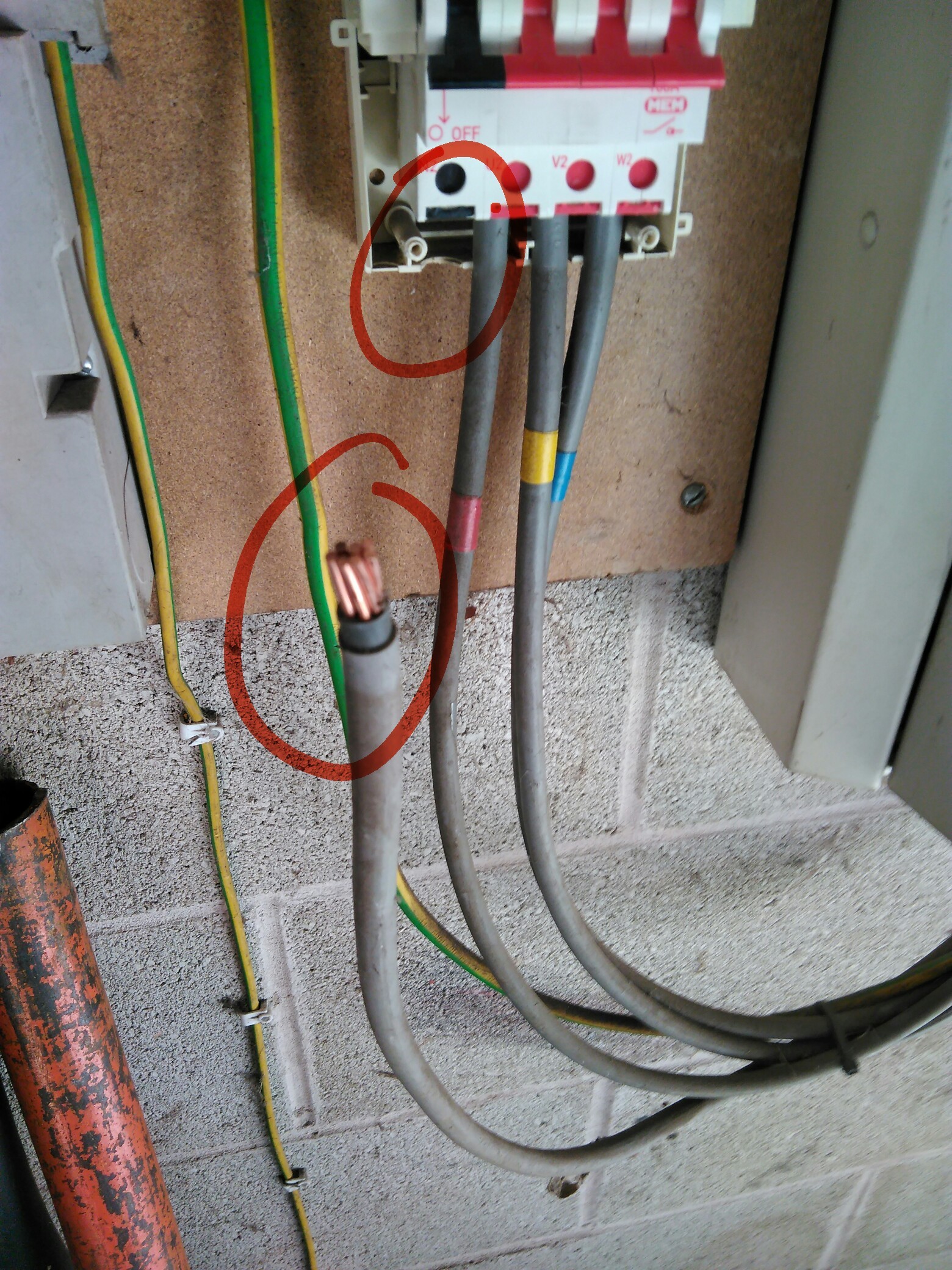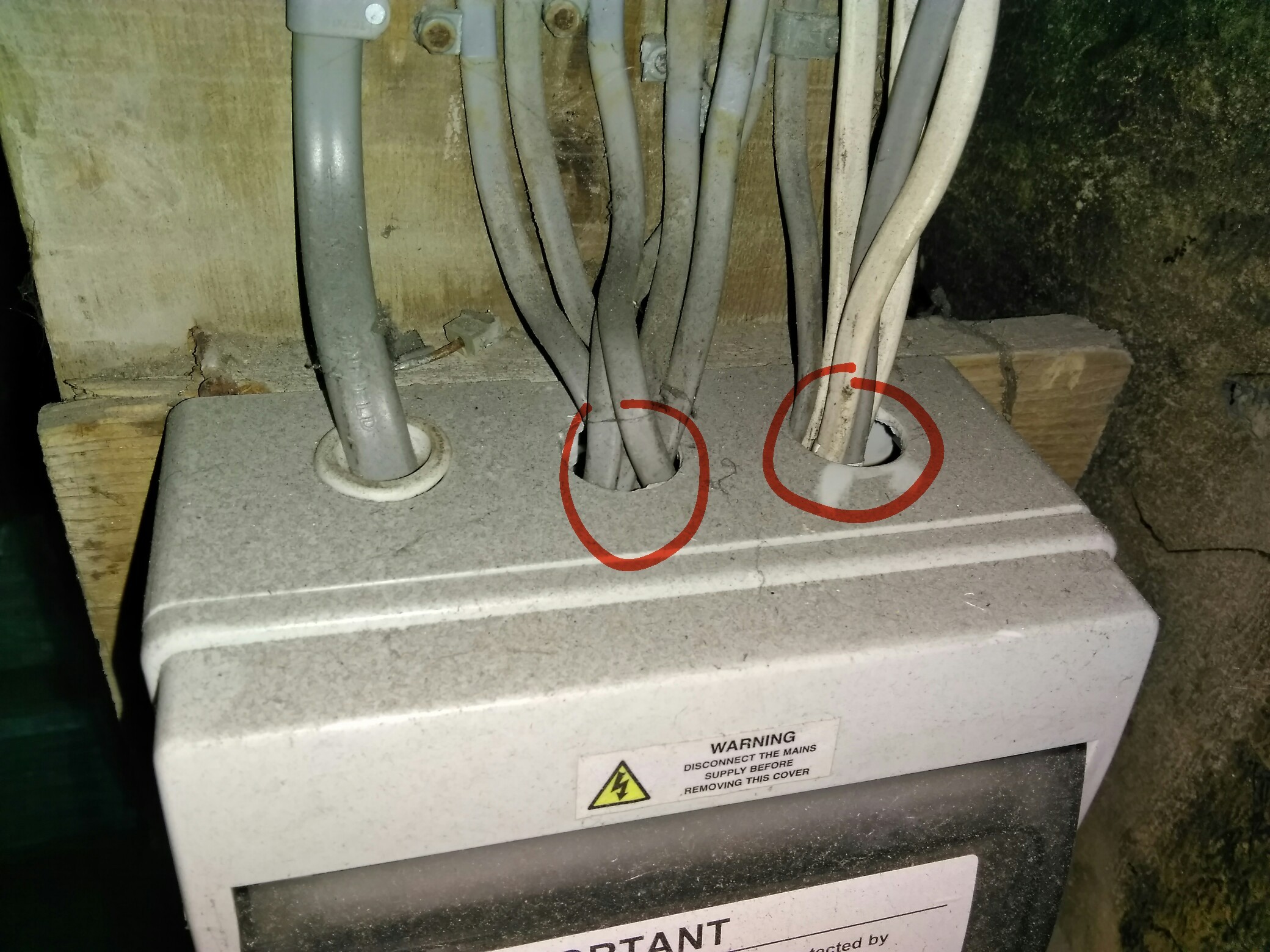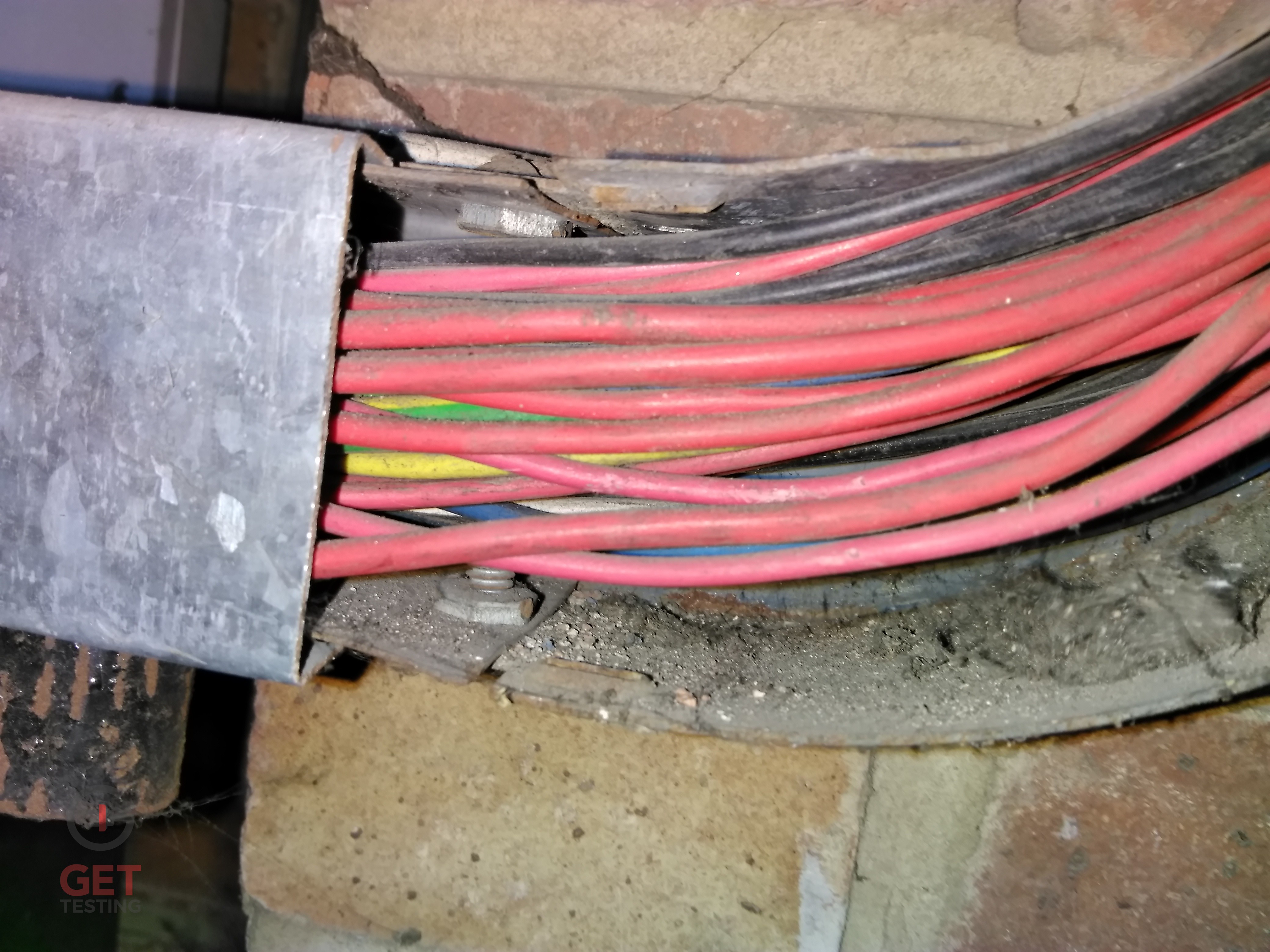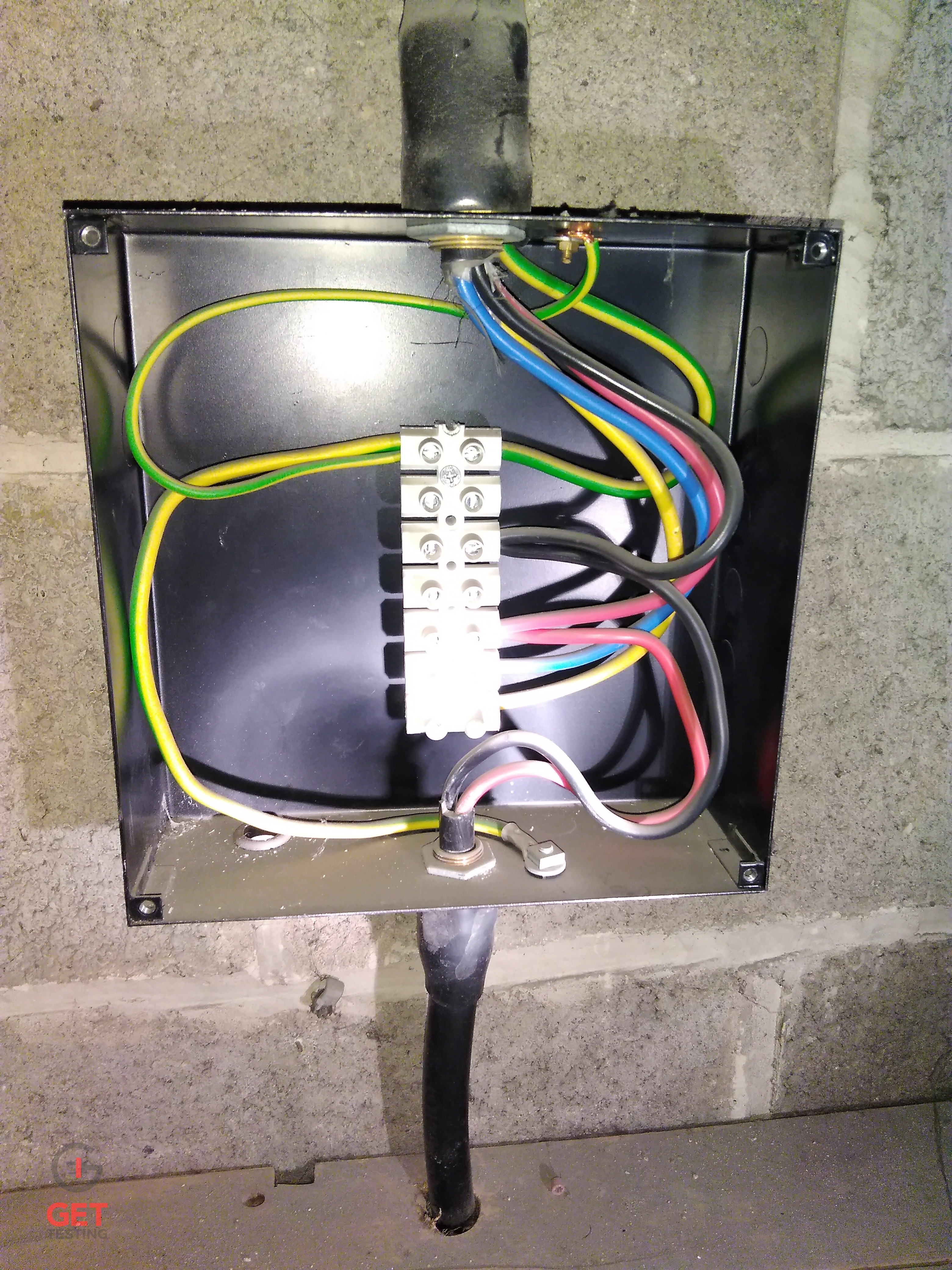Let GetTesting take care of your building’s fixed electrics. EICR (electrical installation condition report) or Fixed Wire Testing involves a set of visual inspections followed by a series of electrical tests that will highlight any potential problems and establish whether your electrics meet the Wiring Regulations or not. With no hidden costs & fixed rates per circuit our simple pricing structure is easy to understand and won’t land you with any hidden surprises.
With £2,000,000 public liability & professional indemnity
Same great service for blue chips or sole traders
We use qualified electricians only
Testing arranged to cause minimum business disruption
Call us today on 0330 223 4470 or Get a Quote online
What is an EICR?

Main incoming neutral wasn’t secure into it’s screw terminal
Sometimes known as Fixed Wire Testing, or Periodic Inspection & Testing, this process covers the testing of all the fixed wiring systems within your building, such as mains panels, distributions boards, socket outlets, air conditioning and others.
Quick Quote
It involves a series of stringent visual inspections followed by electrical tests on all systems within a building. It highlights any problems or potential problems, allowing you to plan any necessary maintenance works.
Periodic Testing will involve having to disconnect electrical circuits within the building, so careful planning and management is a necessity to minimise business disruption. It is often best performed outside normal working hours, such as a factory shut-down week, or evening, night-time and weekend testing options are also available.

Example of an electrical enclosure found on an EICR with holes not to IP4X.

Trunking lid found missing on an EICR
Why do I need to perform an EICR?
EICRs are carried out to ensure compliance with current electrical wiring regulations. These periodic inspections enable the condition of the electrical system to be determined, as any failures or defects to the design and the safety of the system can be identified and then addressed. You may also be forced to carry out fixed wire testing by a 3rd party, such as your landlord, insurance company or local authority in the case of HMO's and some rental properties.
How often should I carry out an EICR?
| Property Type | Test Frequency | Routine Check |
| Offices | 5 years | 1 year |
| Industrial | 3 years | 1 year |
| Commercial | 5 years | 1 year |
| Shops | 5 years | 1 year |
| Domestic | 10 years* | N/A |
| Residential Accommodation | 5 years* | 1 year |
* Or at change of tenancy, whichever comes first

Enclosure without lid left users exposed to a possible electric shock
Do you need to get your EICR up to date? Get in touch to arrange a site visit
Call us today on 0330 223 4470 or Get a Quote online
Frequently Asked Questions
EICR
Yes. The power would need to be turned off for approximately 30 minutes per circuit & the power turned off to the whole house or flat for about 15 minutes also, for a few final tests at the end.
An EICR is a complex series of tests and shouldn’t be rushed. The size of the installation and therefore the time taken will vary massively depending on the nature of the building. As a general rule, we schedule 30 minutes per circuit for an EICR, but some circuits such as lighting or ring circuits may take longer. Also lack of labelling or documentation will slow it down.
During an EICR the testing consists of multiple visual inspections and electrical tests and covers ALL hardwiring such as sockets, lighting, switches, main panels, distribution boards, air conditioning and other fixed electrical components.
It is a legal requirement for private residential landlords to have an EICR every 5 years in nearly all cases. However for private homeowners or commercial/industrial properties an electrical safety certificate is not a legal requirement, but may be required as part of an insurance policy or lease agreement.
During an EICR the testing consists of multiple visual inspections and electrical tests and covers all hardwiring such as sockets, lighting, switches, main panels, distribution boards, air conditioning and other fixed electrical components.
An electrical installation comprises all the fixed electrical equipment that is supplied through the electricity meter. What makes up an electric installation? Consumer unit (fusebox or distribution boards) that contains all the fuses, circuit-breakers and preferably residual current devices (RCDs). Cabling, including that which is concealed in the ceiling and walls. Accessories (such as sockets, switches and light fittings) (such as sockets, switches and light fittings).An electrical installation comprises all the fixed electrical equipment that is supplied through the electricity meter. What makes up an electric installation? Consumer unit (fusebox or distribution boards) that contains all the fuses, circuit-breakers and preferably residual current devices (RCDs). Cabling, including that which is concealed in the ceiling and walls. Accessories (such as sockets, switches and light fittings) (such as sockets, switches and light fittings).
An electrical installation condition report (EICR) comprises of checking all the fixed electrical equipment that is supplied through the electricity meter. What makes up an electric installation? Consumer unit (fusebox or distribution boards) that contains all the fuses, circuit-breakers and preferably residual current devices (RCDs). Cabling, including that which is concealed in the ceiling and walls. Accessories (such as sockets, switches and light fittings) (such as sockets, switches and light fittings).
The cost for an EICR per circuit will vary depending on the size of the building, age/condition of installation and the building type. Certain installations are more complex than others so will vary. If there are no records and the circuits are not easy to identify, an hourly rate may be more suitable.
The price of an EICR can vary from hundreds into 10s of thousands depending on the type of building and complexity of the electrical installation.
An EICR is a series of visual inspections followed by electrical tests by a suitably qualified and experienced engineer that determines the condition of an electrical installation and can be used as a starting point for any necessary remedial works.
An EICR should only be performed by some electricians qualified to perform an EICR and familiar with the type of installation they are testing. This is done to make sure they are capable of comprehending the periodic codes needed for an EICR. An EICR gives you peace of mind that your property’s electrical system is safe, properly installed, and compliant with all applicable laws.
